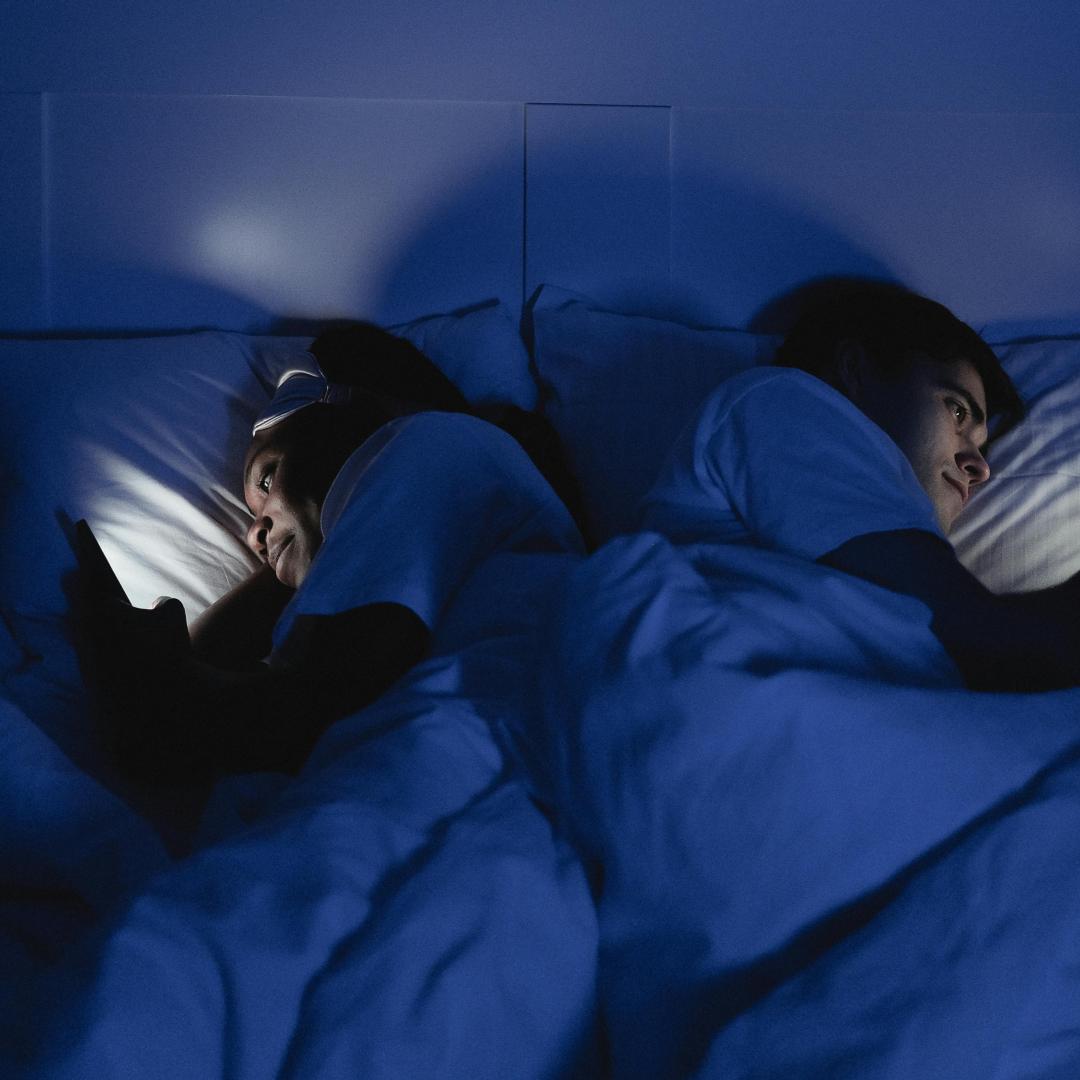The Impact of Screen Time on Your Sleep and How to Reduce It
Screens have become an integral part of daily life for work, education, communication, and entertainment. However, the escalating use of screens, particularly before bedtime, has raised significant concerns about its impact on sleep. Understanding the relationship between screen time and sleep quality is crucial, as poor sleep can adversely affect physical health, mental well-being, and overall quality of life.
The Impact of Screen Time on Sleep
-
Blue Light Exposure: Most screens emit blue light, a high-energy visible light. During the day, blue light can boost attention and awareness, but at night, it can disrupt the body's natural circadian rhythm. The circadian rhythm is essentially the body's internal clock, signaling when it's time to be awake and when it's time to wind down for sleep. Blue light exposure before bed inhibits the production of melatonin, a hormone that induces sleep, thus delaying sleep onset and reducing sleep quality.
-
Increased Alertness: Engaging with stimulating content, such as work emails, social media feeds, or action-packed video games, can increase cognitive and emotional arousal. This heightened state of alertness can make it difficult for the brain to transition smoothly into a state conducive to sleep.
-
Reduced Sleep Duration: Prolonged screen time, particularly late at night, can lead to reduced sleep duration. The “just one more episode” or scrolling habit can easily extend bedtime far beyond the intended hour, truncating the time available for restorative sleep.
-
Sleep Disorders: Chronic exposure to screens before bed is associated with sleep disorders, such as insomnia and delayed sleep phase syndrome. These disorders can lead to further complications, including daytime fatigue, compromised immune function, and mood disturbances.
How to Reduce Screen Time and Improve Sleep
-
Establish a Digital Curfew: Set a consistent time each evening to power down all electronic devices, ideally one to two hours before bed. This allows your body to transition into rest mode and helps regulate your circadian rhythm.
-
Create a Screen-Free Bedroom Environment: Make your bedroom a sanctuary for sleep by removing televisions, computers, and smartphones. If total removal isn't feasible, at least ensure they are turned off or kept at a distance.
-
Invest in Quality Sleepwear and Bedding: Comfortable sleepwear and high-quality bedding, tailored to your preferences, can encourage restful sleep and make the bedroom more inviting, reducing the temptation to bring screens to bed.
-
Use Night Mode Features: Many devices now offer night mode or blue light filter settings, which reduce blue light emission during evening hours. While not a complete solution, this can help mitigate some negative impacts of screen exposure.
-
Engage in Pre-Sleep Relaxation Practices: Instead of scrolling through your phone, engage in activities that promote relaxation, such as reading a book, taking a warm bath, or practicing mindfulness exercises like meditation or deep breathing.
-
Prioritize Physical Activity: Regular physical activity, particularly in natural light, can improve sleep patterns and help regulate your circadian rhythm. Aim for at least 30 minutes of moderate exercise most days of the week, but avoid vigorous activity close to bedtime.
-
Educate and Communicate: Discuss the importance of screen-free time with family members, especially children, who may be more susceptible to the allure of digital devices. Encourage practices that promote healthy screen habits as a household.
Balancing screen time and securing a good night's sleep is not just important for adults; it's crucial for children and teenagers whose development can be significantly impacted by poor sleep. By adopting healthier screen habits and creating a conducive sleep environment, everyone can work towards a better night's rest and enhanced overall well-being. Prioritize sleep health today for a more refreshed and productive tomorrow.






















